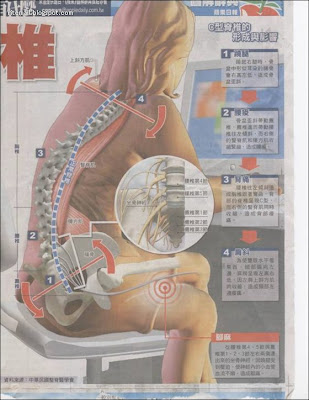Researchers at the National Institutes of Health say that nearly 40 percent of adults have used some type therapy that isn't taught in medical schools. But more than 40 U.S. universities, including Stanford, UCLA, Duke and The George Washington University have integrative medicine centers.
Jean Ayers is not a regular patient. She is studying to be a physician assistant at George Washington University, which includes taking an elective course in integrative medicine. Participating in treatments is strongly encouraged.
"In most of my training as a physician assistant, we look at a patient's history and symptoms and then come up with a quote differential diagnosis," says Ayers. "Here we focus more on the symptoms as indicative of lifestyle and symbolic of larger issues."
The Center for Integrative Medicine at the George Washington University Medical Center was founded in 1988 by Dr. John Pan, who had practiced as an obstetrician and gynecologist for more than 25 years. He says the center has about 6,000 patient visits a year. Most have tried conventional medicine.
"They have gone to Hopkins. They have gone to the Mayo Clinic," says Pan. "They aren't solving their problem. They are telling them nothing can be done, you have to live with it and they are seeking the last resort."
VOA
More Americans are turning to alternative medicine, some when they feel traditional medicine has failed them.
That includes patients like Anna Sterud. After a two-year battle with ovarian cancer, including surgery, chemotherapy and a clinical trial, she decided to try vitamin C infusions.
"I'm very much for scientifically proven methods of treatment, but when you feel your time is starting to run out, you feel you just have to go 100 percent and look for alternatives and that is what I did."
With more Americans turning to alternatives, the U.S. government founded The National Center for Complementary and Alternative Medicine as part of the National Institutes of Health.
"Our job here at the National Institutes of Health is to bring really good science to these really interesting practices," says Dr. Josephine Briggs, the center's director.
Practices that are considered outside mainstream medicine, like the use of dietary supplements, meditation and yoga, as well as chiropractic adjustments, acupuncture, reiki - or therapeutic touch - and massage. A survey by the NIH in 2007 indicated four in 10 Americans use one of these practices, most often to treat pain.
VOA - A. Greenbaum
Anna Sterud is using both traditional and alternative medicine to fight cancer.
"I think that the extent to which Americans are interested in these practices is a good reason for them being studied," says Briggs. "We do do our best to provide reliable information on our website about methods. That material is carefully reviewed by peers and scientific experts."
Testing some alternative therapies can be difficult. Scientists still aren't certain how acupuncture works.
"There may be direct effects of the stimulation on the nervous system that change pain processing and our researchers are looking at those," says Briggs. "But part of this may be expectation and the reassurance of the practitioner, the effect of the ritual. Some people call it the placebo effect. If it helps, however, it is worth knowing about."
Dr. Deirdre Orceyre is both a naturopathic physician and Chinese medicine practitioner at the Center for Integrative Medicine. She sometimes uses acupuncture for her patients.
"I try my best to use it in conjunction with the more Western model with natural or conventional and bring that in as a perspective and a healing modality."
That is the philosophy behind integrative medicine, to complement Western treatments with other methods.
"For me it was very important to do both, because I believe in the scientifically approved methods," says Sterud, the cancer patient.
She's encouraged that her oncologist has asked her to share information on her experience at the Center for Integrative Medicine.



















